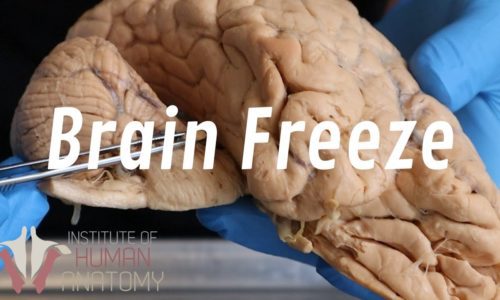Short Sleep Duration and Weight Gain |
When people don’t sleep enough, they may experience increased appetite because leptin will be lower, explains Lucette Talamas, Registered Dietitian with Baptist Health South Florida.
Dr. Jeremy Tabak, Medical Director of the Galloway Sleep Center with Baptist Health South Florida, says sleep apnea can also affect the appetite hormones and stimulate appetite.
Transcript
HERE’S A GRAPHIC TO SHOW OUR VIEWERS SHORT SLEEP DURATION. CAN YOU SEE WHAT WE ARE LOOKING AT HERE? > WE ARE LOOKING AT THE GRAPHIC THAT SHOWS HOW WHEN WE DON’T SLEEP ENOUGH EVERY NIGHT THIS CAN ULTIMATELY IMPACT YOUR WEIGHT AND INCREASED FAT GAIN OR DECREASED LOSS. WHEN YOU ARE NOT SLEEPING ENOUGH WE MAY EXPERIENCE INCREASED APPETITE. IT’S GOING ON INSIDE THE BODY IS THIS DISRUPTION OF YOUR APPETITE HORMONE. WE MAY NOT REALIZE THAT WHEN IT COMES TO THE WORLD OF HORMONES WE HAVE HORMONES THAT MAY HELP CONTROL THEIR APPETITE. FOR EVERY HORMONE ACTION THERE IS ONE THAT DOES THE OPPOSITE. SO THE GROWING HORMONE IS THE ONE THAT TELLS OUR BRAIN THAT WE ARE HUNGRY. WHEN THAT ONE IS CIRCULATING IN THE RIGHT LEVELS YOUR BODY KNOWS LET’S STOP EATING. WE ARE SATISFIED. WHEN YOU’RE NOT SLEEPING ENOUGH SOME STUDIES ARE SHOWING THIS THEORY THAT LEPTIN WILL BE LOWER. THAT MEANS OUR SATIETY WON’T BE REGISTERING IN OUR MIND. WE’RE GOING TO EXPERIENCE INCREASED APPETITE. THAT COMES FROM SHORT SLEEP DURATION. > INTERESTING. WOULD YOU LIKE TO CHIME IN? > YOU SEE THE SAME THING IN SOME SLEEP DISORDERS. SLEEP APNEA CAN ALSO AFFECT THE APPETITE HORMONES AND STIMULATE APPETITE.








